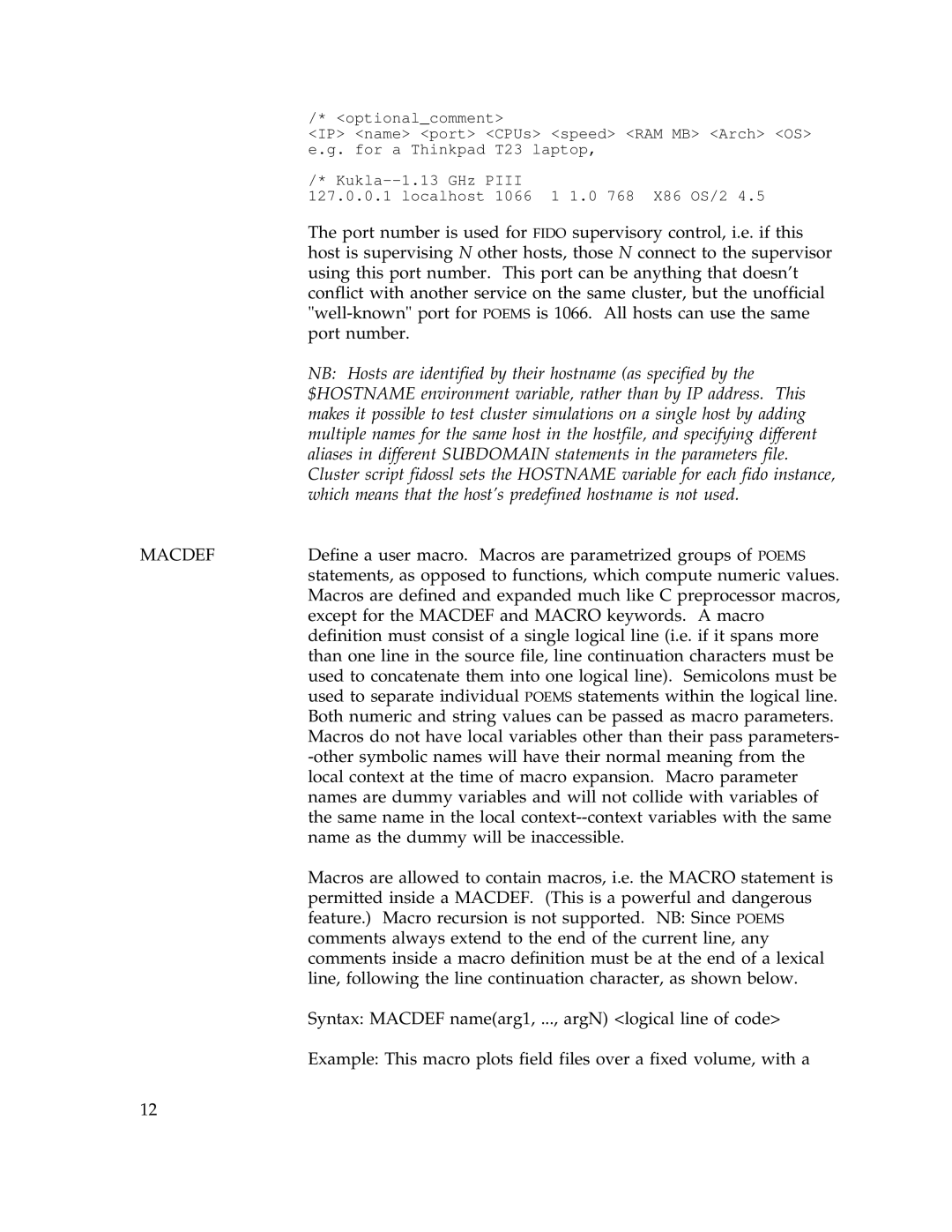| /* <optional_comment> |
| <IP> <name> <port> <CPUs> <speed> <RAM MB> <Arch> <OS> |
| e.g. for a Thinkpad T23 laptop, |
| /* |
| 127.0.0.1 localhost 1066 1 1.0 768 X86 OS/2 4.5 |
| The port number is used for FIDO supervisory control, i.e. if this |
| host is supervising N other hosts, those N connect to the supervisor |
| using this port number. This port can be anything that doesn’t |
| conflict with another service on the same cluster, but the unofficial |
| |
| port number. |
| NB: Hosts are identified by their hostname (as specified by the |
| $HOSTNAME environment variable, rather than by IP address. This |
| makes it possible to test cluster simulations on a single host by adding |
| multiple names for the same host in the hostfile, and specifying different |
| aliases in different SUBDOMAIN statements in the parameters file. |
| Cluster script fidossl sets the HOSTNAME variable for each fido instance, |
| which means that the host’s predefined hostname is not used. |
MACDEF | Define a user macro. Macros are parametrized groups of POEMS |
| statements, as opposed to functions, which compute numeric values. |
| Macros are defined and expanded much like C preprocessor macros, |
| except for the MACDEF and MACRO keywords. A macro |
| definition must consist of a single logical line (i.e. if it spans more |
| than one line in the source file, line continuation characters must be |
| used to concatenate them into one logical line). Semicolons must be |
| used to separate individual POEMS statements within the logical line. |
| Both numeric and string values can be passed as macro parameters. |
| Macros do not have local variables other than their pass parameters- |
| |
| local context at the time of macro expansion. Macro parameter |
| names are dummy variables and will not collide with variables of |
| the same name in the local |
| name as the dummy will be inaccessible. |
| Macros are allowed to contain macros, i.e. the MACRO statement is |
| permitted inside a MACDEF. (This is a powerful and dangerous |
| feature.) Macro recursion is not supported. NB: Since POEMS |
| comments always extend to the end of the current line, any |
| comments inside a macro definition must be at the end of a lexical |
| line, following the line continuation character, as shown below. |
| Syntax: MACDEF name(arg1, ..., argN) <logical line of code> |
| Example: This macro plots field files over a fixed volume, with a |
12
